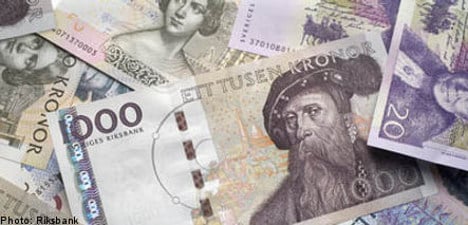“The Executive Board of the Riksbank has decided to hold the repo rate unchanged at 1.50 per cent to support economic activity and ensure that inflation is in line with the target of 2 per cent,” said the Risksbank in a statement.
The Riksbank aims to keep the rate at this level for a year, until inflationary pressures increase, which will lead to a gradual rise from 1.50 percent.
The announcement comes at a time when Europe’s economy is in a period of unease, and Sweden’s economy is growing weakly, due to depressed Swedish exports and weak GDP growth that is expected to remain sluggish, along with slight rises in unemployment figures.
“The Swedish economy has developed more strongly than expected so far this year. Household consumption and corporate investment increased relatively strongly at the beginning of the year, while unemployment has been lower than expected,” the bank said.
When the unease in Europe abates, the bank expects a strengthened level of economic activity in Sweden, as well as increased inflation and resource utilization.
However, if problems persist in the euro area, the bank hinted that the repo-rate may be lowered.
The Local/og



 Please whitelist us to continue reading.
Please whitelist us to continue reading.
Member comments